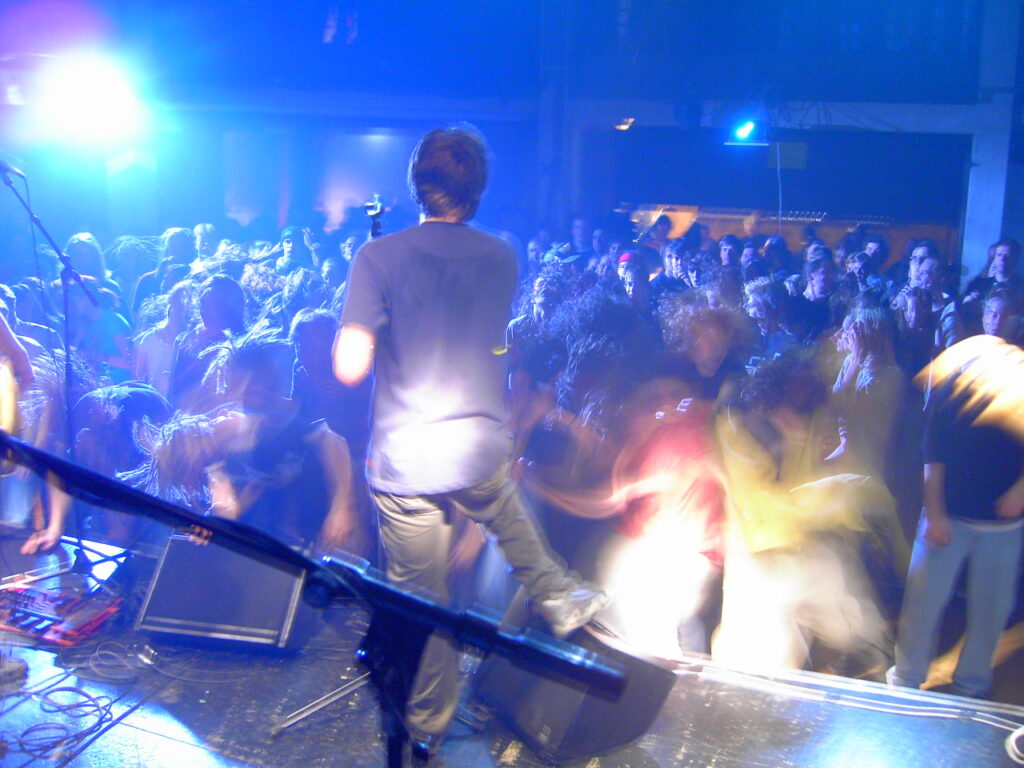Most people are familiar with the idea of controlling a crowd. For example, when you go to concerts, sporting events and other public gatherings, you may notice security guards or police officers monitoring the attendance. These individuals are usually there to control the crowd and make sure everyone is safe.
Crowd controllers, also called crowd managers, help maintain order in situations where large groups of people must remain safe, like at stadiums during games or at indoor events such as conventions. Their job is to make sure that visitors follow rules and do not pose a danger to themselves or others.
The role of a crowd controller requires constant communication and problem-solving skills to ensure everyone remains safe while still having fun.
What Does a Crowd Controller Do?
Crowd controllers keep order at large events where a lot of people are gathered, such as concerts and sporting events. Crowd managers must enforce rules and regulations while ensuring the safety of everyone attending a specific event. Their goal is to keep the event running smoothly while keeping visitors safe and happy.
Crowd controllers are in charge of monitoring the event and making sure visitors follow safety rules. They often use handheld radios to communicate with other staff members and law enforcement to keep everyone safe and in compliance with rules. This includes making sure people do not enter areas where they do not belong or bypassing security screenings.
Crowd controllers respond to emergency situations and help evacuate the crowd in the event of a disaster. They also assist disabled visitors and provide first aid when needed.
Responsibilities of a Crowd Controller
- Communication: Crowd controllers must be able to communicate with staff and visitors to effectively perform their duties. They use radios to communicate with other staff members at the event and first responders in case of an emergency.
- Observation: Crowd controllers must be able to observe the crowd and identify potential dangers, such as someone trying to bypass security or someone in distress.
- Problem-solving: A crowd controller must be able to assess situations and use problem-solving skills to come up with solutions to issues such as unruly attendees or disabled visitors in need of assistance.
- Security: Crowd controllers must be able to keep the event safe and secure by keeping unruly attendees at bay and protecting visitors who are disabled or in need of assistance.
Key Tasks of a Crowd Controller
- Enforcing rules: A crowd controller must be able to enforce rules and regulations while monitoring the event to make sure everyone is safe. This includes enforcing rules about where to park, where to stand, what items are allowed or not allowed on the premises and other restrictions.
- Guiding guests: A crowd controller must be able to guide guests to their seats, provide directions to restrooms, help disabled visitors and other attendees and assist visitors who have questions about the event.
- Keeping the crowd safe: A crowd controller must be able to keep the crowd safe by monitoring visitors for signs of trouble, such as fighting or falling and taking the appropriate measures, such as intervening or contacting emergency responders.
- Escorting unruly visitors: A crowd controller must be able to escort unruly visitors out of the event to help keep the crowd safe.
- Responding to emergencies: A crowd controller must be able to respond to emergency situations, such as hearing alarms or seeing a fire and evacuating the event.
Why Become a Crowd Controller?
Crowd controllers are in high demand at concerts and sporting events, along with other large-scale events where there are a lot of people gathered in one area. If you enjoy working with people, love being part of a team and enjoy problem-solving, then this might be a great career for you.
If you like being around a lot of people, have strong communication skills and enjoy problem-solving, then this might be a great career for you. Many people who work in this industry enjoy the challenge of dealing with difficult situations, working as part of a team to solve problems and making sure everyone remains safe.
How to Become a Crowd Controller?
There are no specific college majors or degrees that are required for becoming a crowd controller, but certain skills are helpful. Along with excellent communication skills, you need to be able to pay close attention to details, be able to think on your feet and have strong problem-solving skills. You should also be able to work well under pressure, remain calm in emergency situations and have a good understanding of how to follow safety procedures and respond to emergency situations.
You can become a crowd controller by completing a course in crowd management at a nearby college, community college or trade school, or by enrolling in a short-term certification program. You can also enrol in a degree program or certificate program that focuses on public safety or law enforcement.
Tips for effective crowd management at events
- Organise: Make sure your team is organized and understands their roles and responsibilities. This will allow everyone to work together more effectively and efficiently.
- Communication: Make sure your team uses clear and concise communication, especially when handling difficult situations or managing unruly attendees.
- Stay updated: Stay updated on any event changes, rules and regulations and any other information that may be helpful for managing a large group of people. – Be prepared: Be prepared for any situation that may arise and know what to do when an unruly situation occurs.
- Be patient: Stay patient when working with unruly attendees and always try to solve the situation in a calm, peaceful manner.
- Be tactful: Be tactful when managing crowds and always use the right words and tone when speaking with people.
- Be prepared for the worst: Always be prepared for the worst and have a plan in place for emergency situations.
- Be observant: Be observant and remain alert during the event to spot any potential issues before they turn into serious problems.
- Be creative: Be creative in your approach to handling problems and always be open to trying new strategies.
- Be flexible: Be flexible in your approach and use different strategies to address different types of problems.
How do you approach an unruly crowd?
Your approach to an unruly crowd will largely be determined by the situation. If the crowd is angry or upset about something, you’ll want to try to diffuse the situation before it escalates. You can do this by gathering information from the crowd to learn what is making them upset and then communicating this information to those in charge of resolving it.
If the crowd is angry or upset with you or your organization, you’ll want to try to calm the situation down as quickly as possible. This can be done by remaining calm, apologizing if needed, communicating with the crowd and asking them to leave. If the crowd is dangerous or violent, you’ll want to try to get them under control as quickly as possible. You can do this by remaining calm and imposing your authority on the crowd. You can also try to de-escalate the situation by separating those involved and getting them away from the crowd.
Conclusion
A crowd controller is responsible for managing large crowds at events. These events could be concerts, sporting events or other types of public gatherings. Crowd controllers use good communication skills and must be able to think quickly in stressful situations.
Successful crowd management requires a combination of good planning and effective communication. To effectively manage crowds, event organisers need to understand how crowds behave and react. They also need to consider what can go wrong and make plans to prevent problems from occurring.



